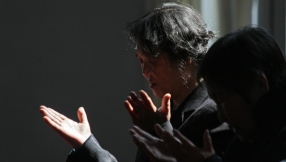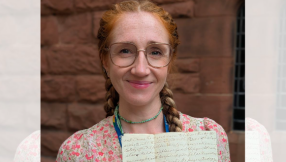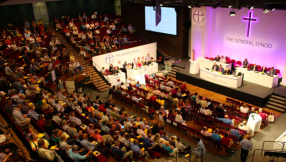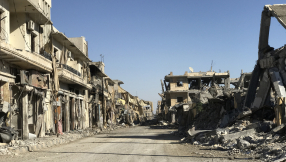US Catholic Bishops Reject Encouragement of Individual Bible Study
On Tuesday 16th November, America's Catholic bishops voted 137-102 to reject the proposal to develop a pastoral statement to guide Catholics how they should study the Bible. Most of the opponents claimed that the statement would become a burden to the financially overloaded Church.
USCCB, headquartered in Washington, has a budget this year of US$127 million, of which 24 percent is paid by dioceses; the balance comes from grants and government funds, such as money for refugee settlement. The Diocese of Boston is now facing the financial crisis, while the other two dioceses in Tucson, Ariz. and Portland, Ore. have filed for bankruptcy. The Spokane diocese, home to the president-elect of the bishops' conference, is expected to file for bankruptcy this month as well.
The proposal put in the vote was first initiated in 2001. A fund of US$150,000 from the sale of the New American Bible was used for a study on how Catholics use the Bible. The USCCB entrusted the survey to the Georgetown University's Centre for Applied Research, and a 600-page report resulted. In 2003, a task force made the suggestion to develop a document in a Q&A format as a Bible tutorial for Catholics.
The victim of this controversial vote can most likely be seen to be the Catholic Bishops from the South, in the Bible belt. They warned that failure to pursue the statement could be misinterpreted.
Bishop Joseph M. Sullivan of Brooklyn explained the worry, "I can imagine the headline tomorrow: 'Bishops, in attempt to cut expenses, do not encourage people to read the Bible.’”
Archbishop Oscar H. Lipscomb, of Mobile, Ala., responded to the result of the vote, "from my position, where the Bible is so much a part of any effort at evangelisation, this would be a disaster public-relations-wise."
Bishop John W. Yanta, of Amarillo, Texas, added, "Coming from a mission diocese, and also from the Bible Belt, I think it would be disastrous for us to vote against this, and I think it would be detrimental. The word of God is essential to evangelisation."
Bishops from the Bible belt would suggest raising a separate fund for the publication of the document.
Yet, from the point of view of other opponents, the proposed document is not very important compared to the financial challenges the Church is facing. They claimed that the Catholic Church obviously encourages Catholics to read the Bible, and that a statement reiterating that support is unnecessary.
In contrast to Protestants, who believe individuals are able to understand the Bible on their own efforts, the Catholic Church is more conservative and restricted in the interpretation of the Holy Word. It emphasised that individual reading of Scripture is always subject to interpretation by the Church.
Even among those who favoured the proposal, Milwaukee Auxiliary Bishop Richard J. Sklba, worried that Catholics were getting too "individualistic" in their Bible studies, saying there is an increasingly “evangelical slant” in the Church.













